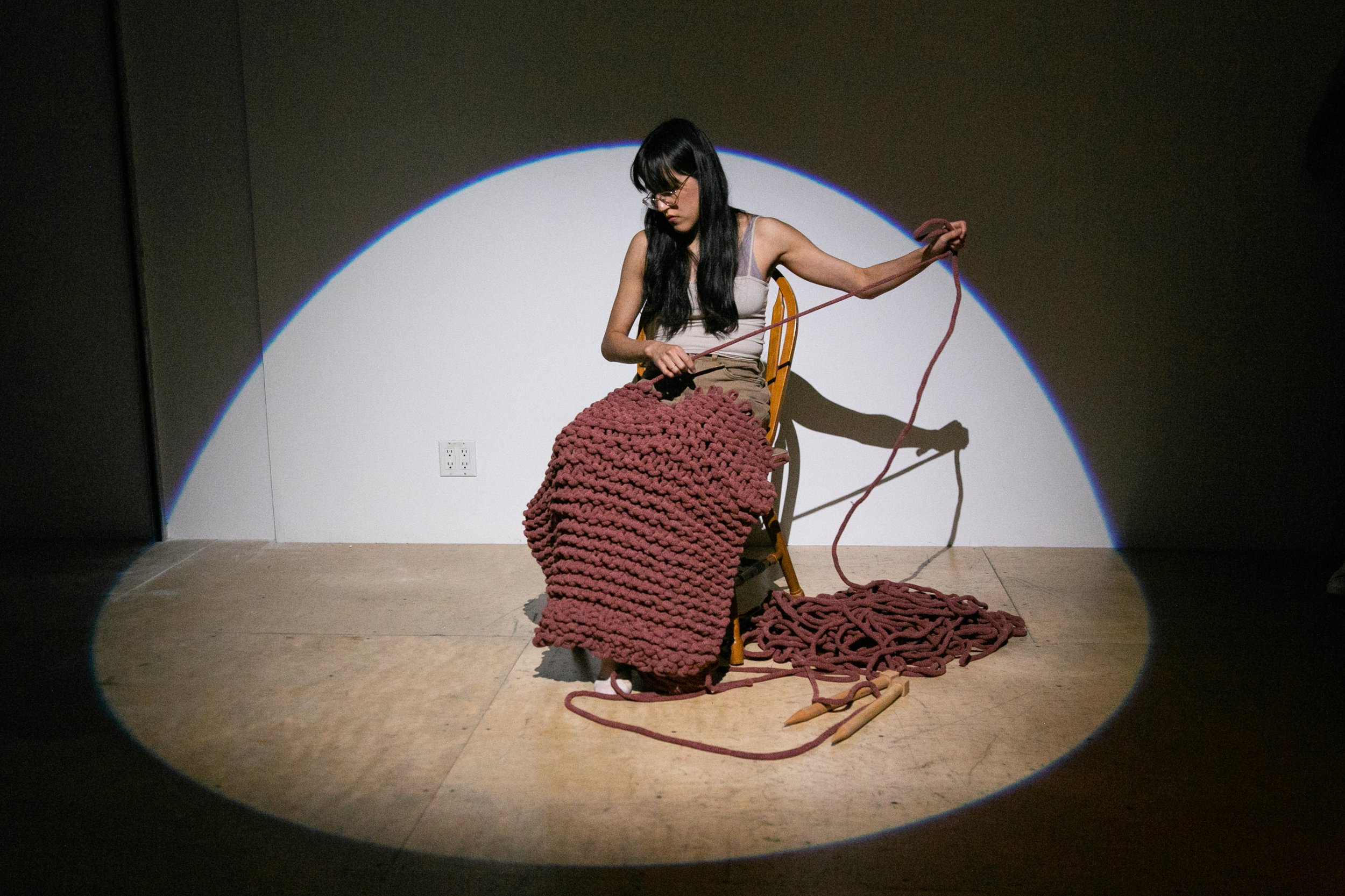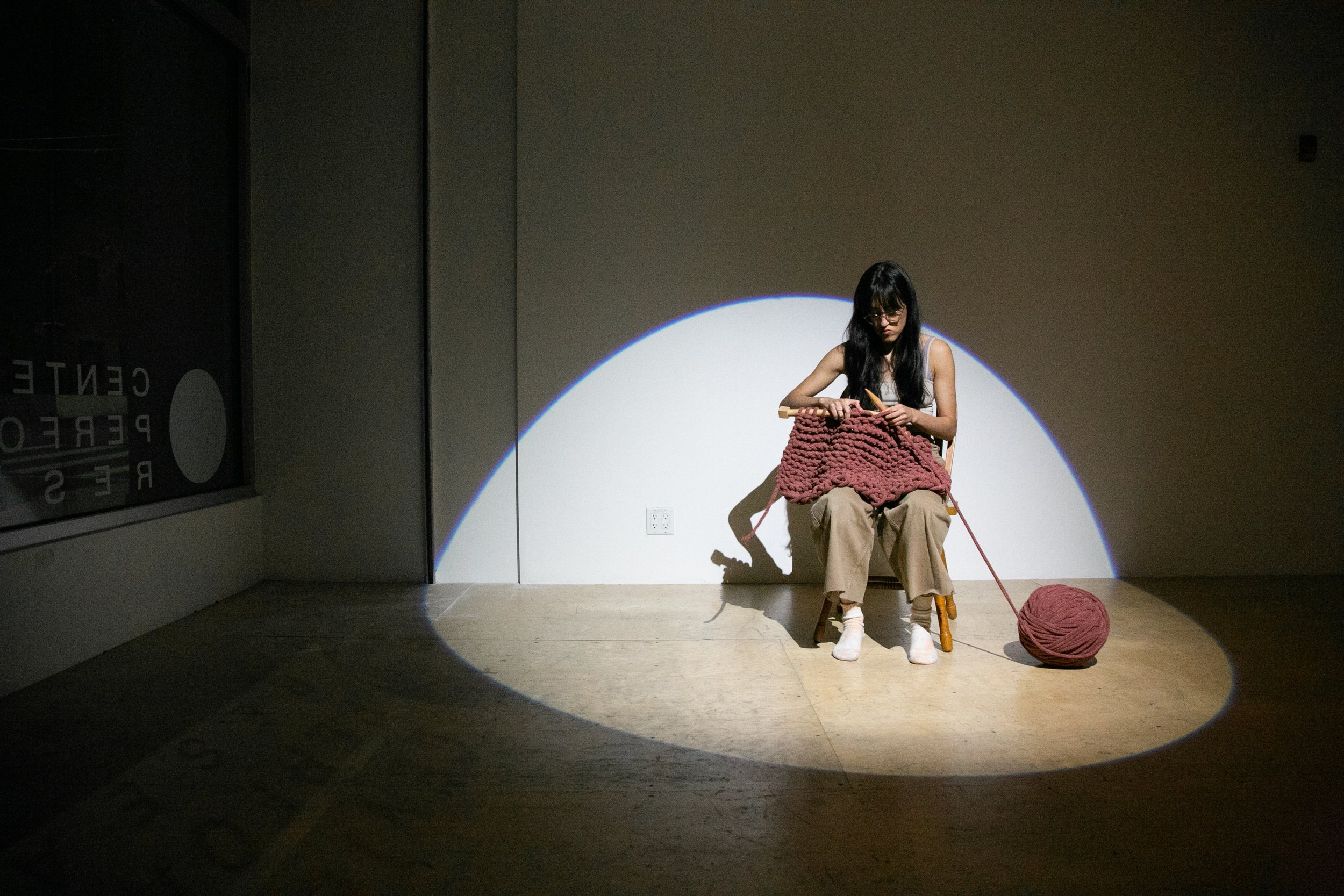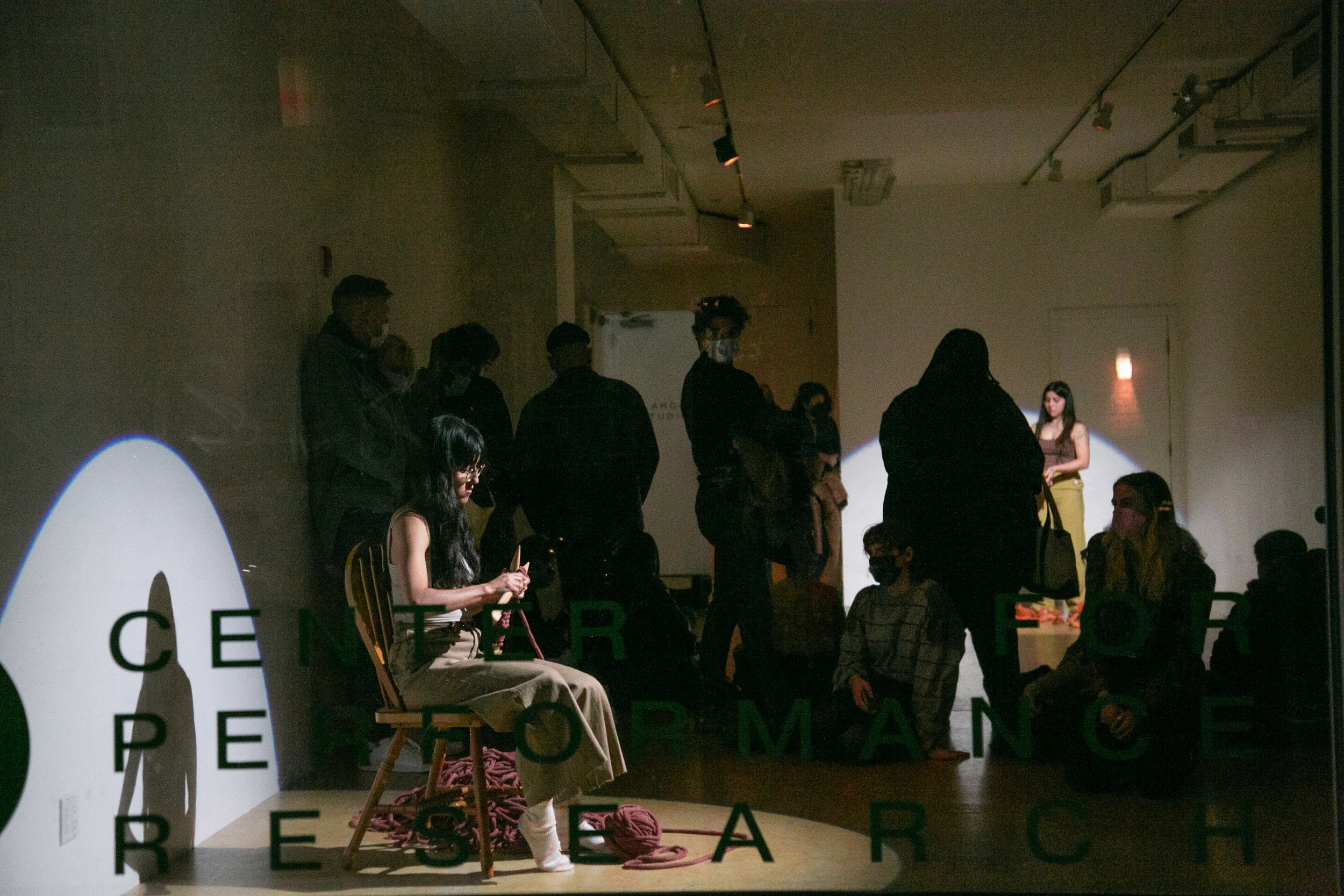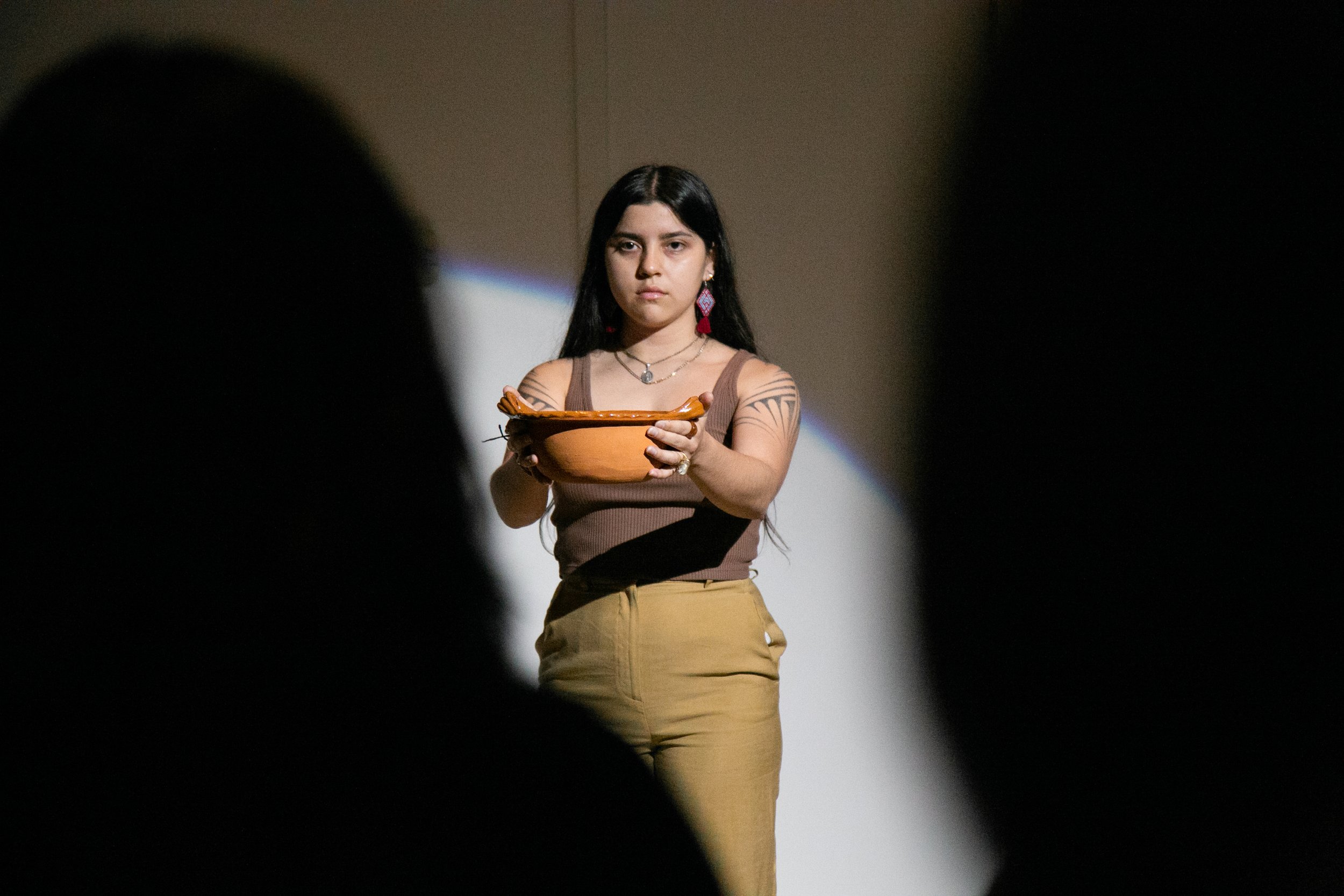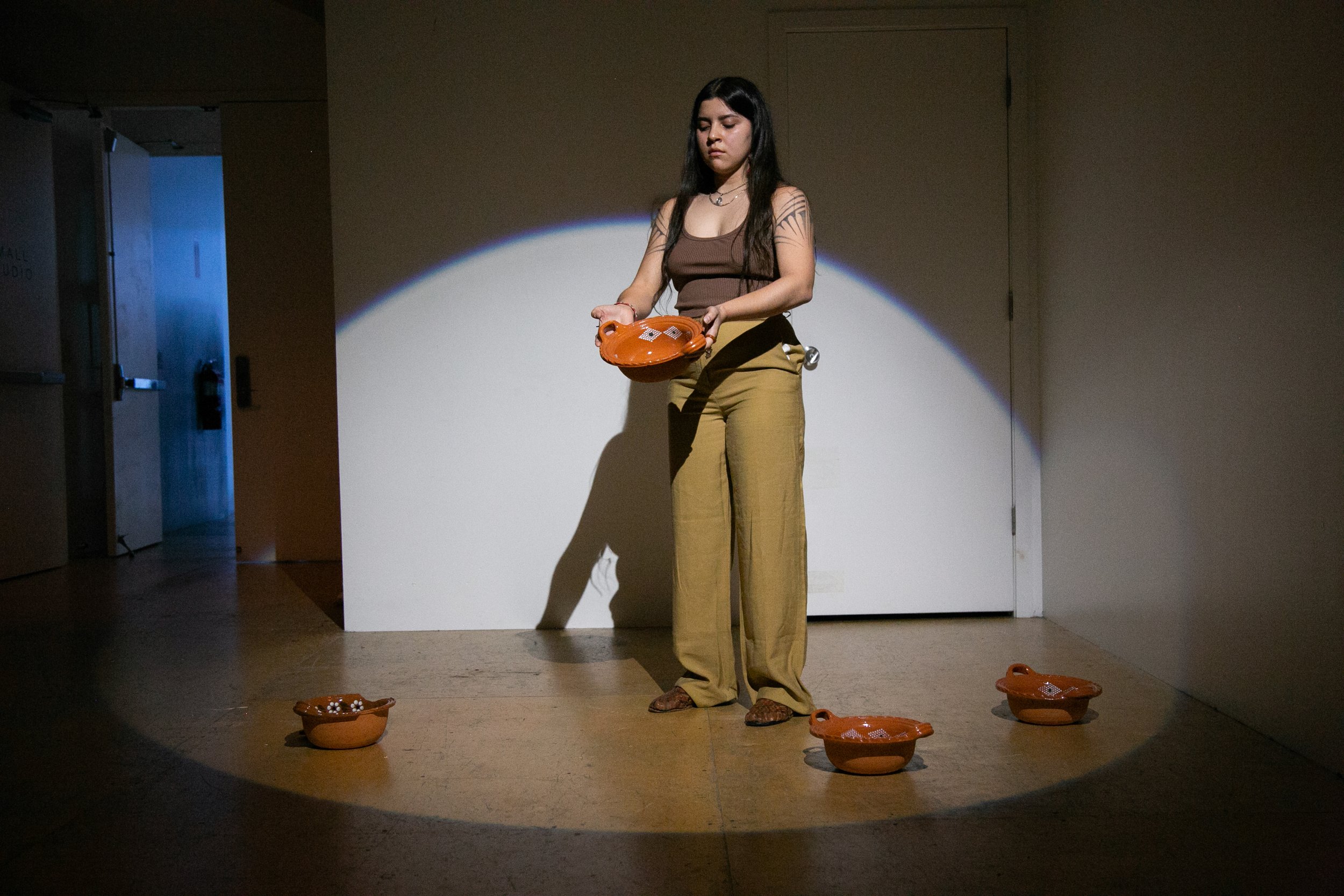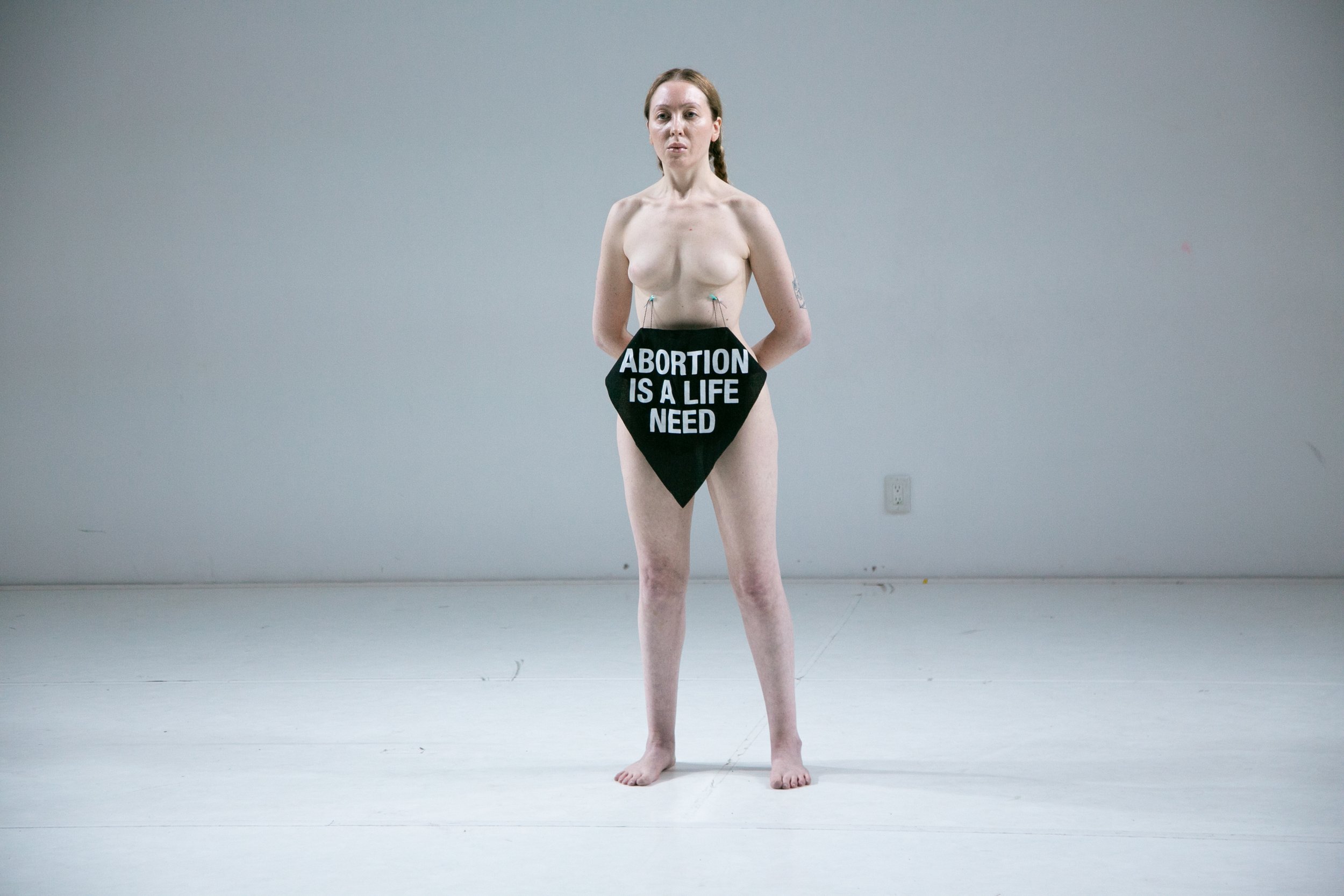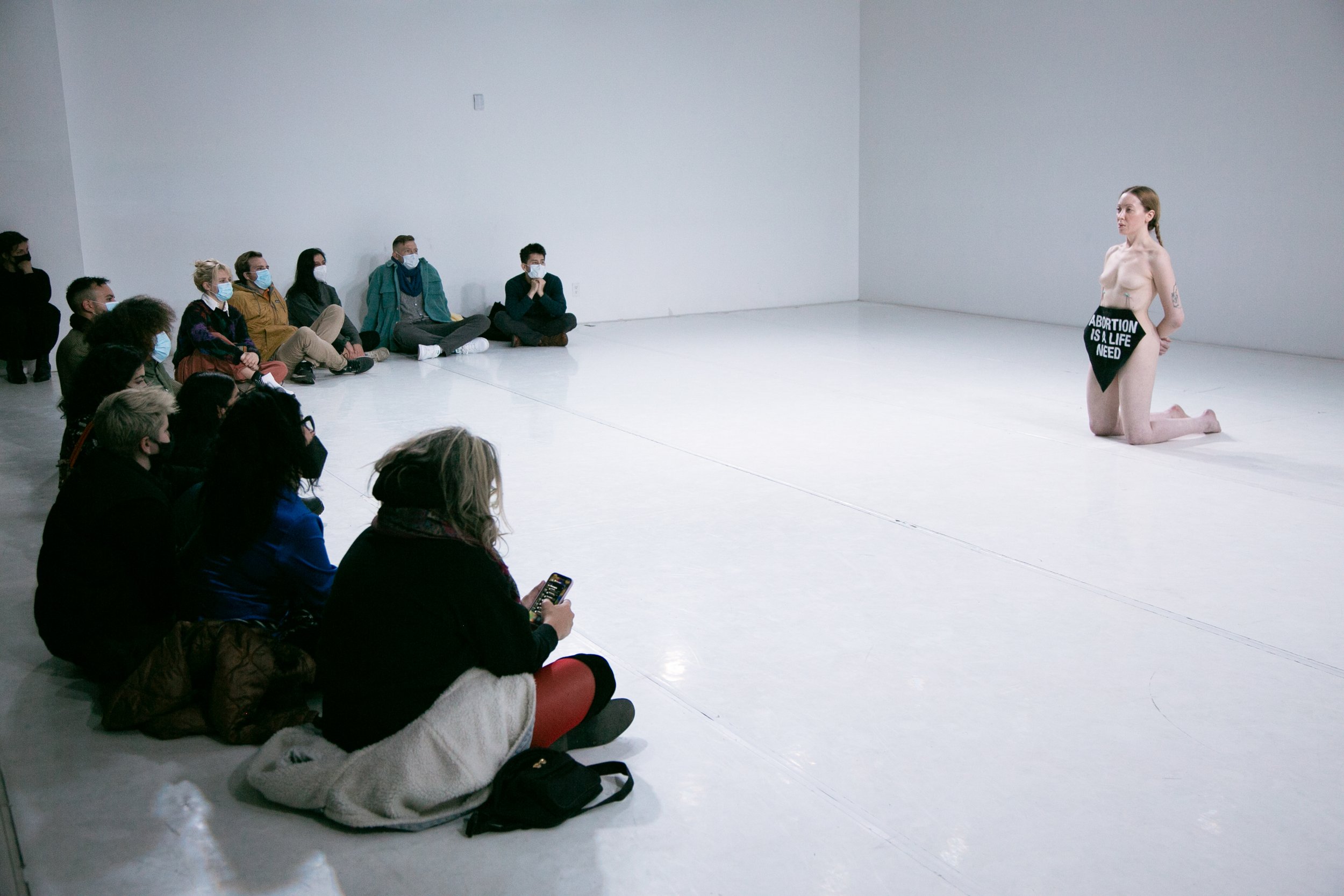Derecho y Del Revés - CPR Open Studios (2022)
CPR 2022 Artist-in-Residence Doménica García organized an evening of performance art showcasing the works-in-progress of queer and female identifying Latin American artists. The evening showcased three new works by Damariz Damken, Natacha Voliakovsky, and Doménica García. In their pieces the artists explore the body from a sculptural lens, generating questions about identity, labor and body liberation.
Doménica García: Derecho y Del Revés
The infinite cycle of constructing and deconstructing one’s identity through knitting. This durational performance explores identity as a layered process that builds upon itself over time. Through the weaving of yarn, the artist explores the complexities and malleability behind their own identity. The large knitting needles and soft yarn address notions of labor and domesticity, highlighting identity as a daily process. Knitting as a performance questions the definition between art and craft, performance and real life, presenting a malleability within the medium and the art itself.
Natacha Voliakovsky: A Life Need
To be alive we need a system that supports our survival. How many more lives are we waiting to lose to the global fight about this life matter? This action carries a message inserted in the abdomen skin, emulating the flags and insignias used at LGTBQ+ marches in Latin America. This body-area is under jurisdictional regulation by entities of power. The message “Abortion is a life need” penetrates the limits of the flesh and skin. The action demonstrates the institutional abuse of power that takes over ours bodies and penetrates the lives of people with fewer resources around the world. This endurance action aims to show the deep necessity for global laws that protect our survival and the freedom to choose over our own territory.
Damariz Damken: Alma de Barro
This durational performance addresses the endured abuse, violence, and labor that women and femme presenting individuals of color experience within interpersonal and familial dynamics. Burdened to embody the weight of a white supremacist, cis-hetero-patriarchal, neo-colonialist society, our forced resilience and strength is a survival mechanism. These burdens are impossible to sustain, eventually causing a rupture within us and our society. This breaking point can manifest in the deterioration of our physical and spiritual wellbeing. However, this rupture can also occur in our release of the norms and cycles which condition us to believe that we must ceaselessly withstand abuse and violence to maintain the illusion of intact peace and harmony— that we must selflessly place the wellbeing of our oppressors before our own— to such an extent that giving up on these dynamics feels radically wrong. To prefer to break the very thing we’ve worked so hard to maintain feels counterintuitive because it had such a heavy hand in shaping our sense of self and identity. There is a guilt and pain in letting go, but this is not ours to feel. To feel guilt and pain in the place of our oppressor is a symptom of their violence. We were placed in such a position to hold and feel for them. Enduring the growing weight of this embodied violence and the fractures it leaves behind speaks to the pain that comes with healing from the things that wound us and cannot be erased once they’ve left their mark. In the breaking of these constructs is our release and transformation.
